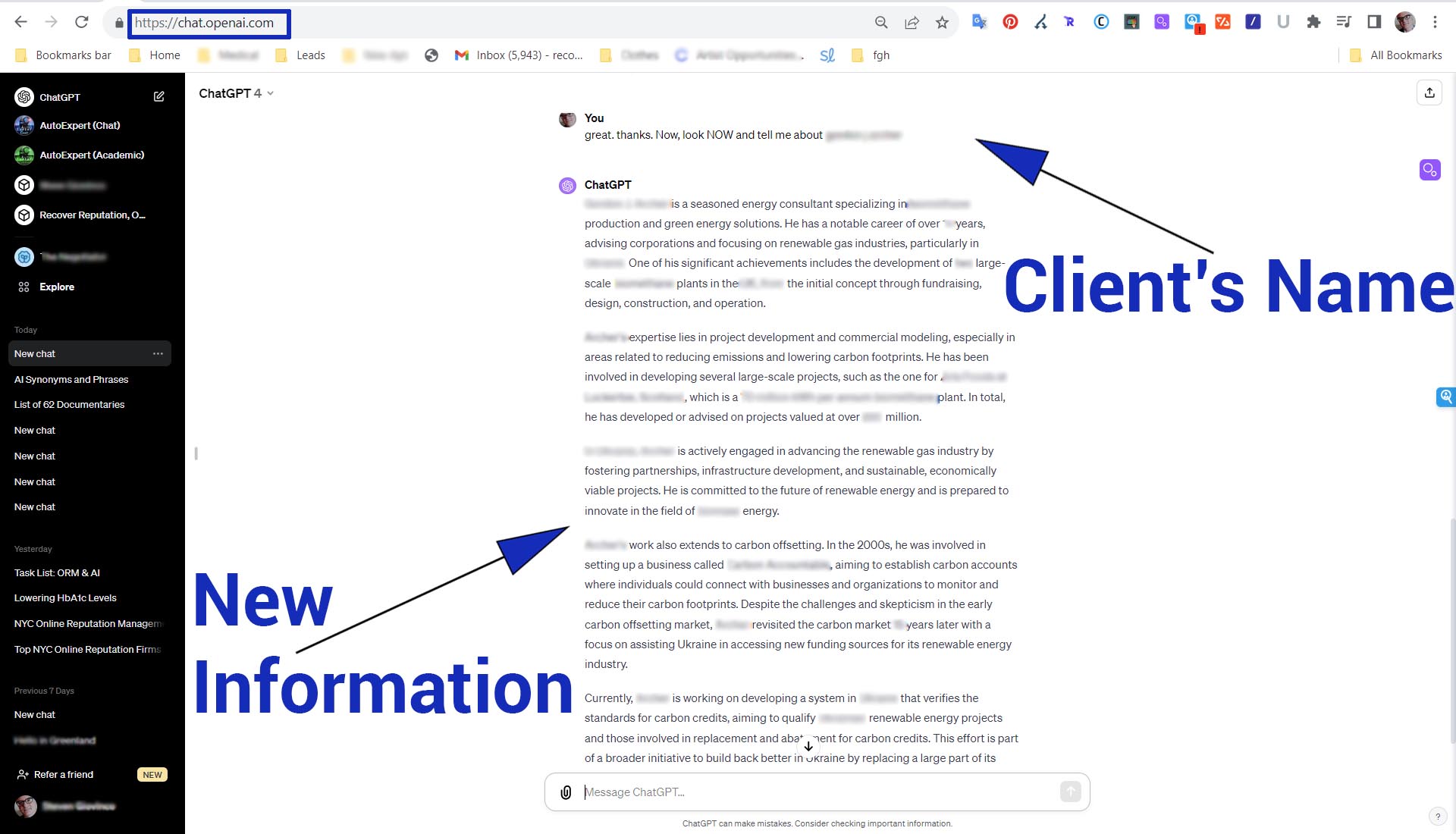Last Updated on August 10, 2023 by Steven W. Giovinco
Writing a Blog Post Is a Crucial Way to Improve, Boost or Repair Your Online Reputation
Here are 14 Ways How to Do it
One of the most frequently asked questions to Recover Reputation is how to repair or improve an online reputation.
The answer?
Write good content, usually in the form of a blog. Adding a well-written, targeted post can help an online reputation.
See Related Information: “25 Free Online Reputation Management Tips and Tools“
Why a Blog?
It’s a way to show expertise in a particular industry or area. Most importantly, however, a blog helps drive site traffic. The more people that visit the positive information—from a blog post, for example–the more the negative links will be pushed down off the first page a Google search result. Here are fourteen tips that can help when writing a blog for your reputation.
1. Know Your Audience
The first place to start is to ask this question: who are you writing for? Knowing your audience is the key to writing a good blog. Other pertinent questions might include your reader’s experts or novices in your field? Are they well educated with advanced graduate degrees, seasoned workforce veterans, or still in college? Where do they live–the suburbs, the rural areas, or urban apartment dwellers? The more specific, as with most aspects of blog writing, the better.
2. Set Your Goals
Your goal is to help build, boost or repair your online reputation. The best way to do this is to appear as an expert. Keep the focus on providing good, helpful information rather than just promoting your business. Readers these days are very savvy and can tell the difference between a thinly veiled advertisement versus a well-written blog post.
3. Pick Good Topics
It’s essential to find and research good blog topics that are of interest to your readers. It should be unique, full of detail, and give helpful information to your intended audience.
What to write on? Start with things that solve current client’s problems since this should be something your intended audience should benefit from. Other subjects can be industry trends, recent conferences you’ve attended, or helpful tips.
4. Write Clear Content
Write clearly, avoiding jargon, long phrases, and complex sentences. This is the web, after all, so keep things brief and to the point.
5. Select a Writing Tone
What is the tone and writing style? Is it conversational, casual, and friendly, or more formal, scientific, or legal? Knowing how you want to be perceived and knowing your audience helps.
6. Add Good Images
A killer image can go a long way in a blog. So it’s essential to have one or maybe more. Use your own, search the Creative Commons site for royalty-free images, or purchase images from stock image sites (prices can range from less than a dollar to $30 or more per image).
7. Add Headings
Headings help break the page and help get important information indexed by search engines such as Google.
8. Create Links
To help your readers, selectively add links back to your site, if pertinent, or to other helpful sources, references, associations, etc. Be sure to limit the number of links, and avoid “stuffing” the post.
9. Have a Catchy Headline
After you’ve written the body of the blog, come up with a catchy headline to grab the reader’s attention. Do this last since this is a summary of the article.
10. Proof for Errors
After everything is done, reread everything to check for errors. Be on the lookout for spelling mistakes, grammatical errors, or continuity issues. Once done, do it again! It’s easy to miss typos or other errors, so try reading the text aloud one final time.
11. Final Review
Finally, ask yourself when rereading the post: is this helpful to your intended audience, and does it provide real value to them? If the answer is “no,” or if you are unsure, then stop and consider rewriting.
On the other hand, if it does offer genuine insights and valuable information, then pause and let it sit for an afternoon or a day—you might have additional thoughts or ideas on how to improve it.
12. Frequency
How often should you write? Initially, as much as you can, meaning every week, if possible, or every other day. This will give you the most significant boost.
However, if this is not possible, try for at least one or two times a month for at least six months. After that, continue writing as an ongoing part of your regular marketing practice.
13. Time Required
Allocate three to five hours per blog. This includes thinking of a topic, writing about it and posting it. Note that when starting, plan on twice the amount of time.
14. Share on Social Media and Other Sites
Perhaps most importantly, share the article on your social media sites such as Twitter, Facebook, LinkedIn, and platforms specific to your industry. Consider, if you feel it is important enough, to email it to key clients or prospects.
The Bottom Line
Writing a blog is one of the best ways to repair or boost your online reputation. Know your audience, become an expert in your field and write frequently. It takes a considerable effort but the results—including salvaging your reputation—are worth it.
See Related Article: “Each Negative Link or Review Loses 30 Customers or $30,000.”
Related posts:
- A Further Look at “Is Online Reputation Management Worth The Money?” by Cheryl Lock on Forbes.com
- 6 Ways Instagram Is Killing Your Online Reputation
- Online Reputation Management Trends for 2022: Zoom, Good Content, NFTs and Metaverse @RecovReputation [Update: Covid]
- Online Reputation Management Tips for Lawyers



